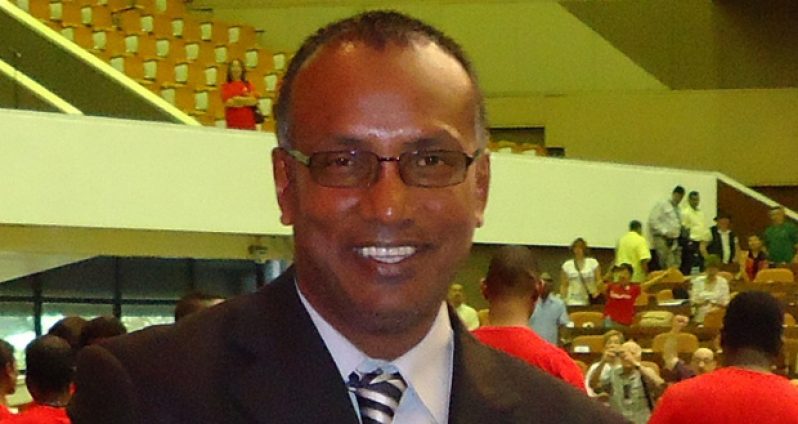U.S. PRESIDENT Barack Obama will be welcomed by the government of Cuba and its people this Sunday with the hospitality, consideration and respect befitting a head of state, as Cuba reaffirms its will to advance relations with the United States, according to President of the Guyana-Cuba Solidarity Movement (GCSM) Haleem Khan.The U.S. President will make an official visit to Cuba from March 20-22.
On the basis of respect for the principles and purposes of the United Nations Charter and the principles of the Proclamation of Latin America and the Caribbean as a Zone of Peace, Khan said President Obama will have an opportunity to directly observe a nation immersed in its economic and social development, and in improving its citizens’ wellbeing.
“The people enjoy rights and can exhibit achievements which are only dreams for many of the world’s countries, despite the limitations derived from their condition as an underdeveloped, blockaded country – which has earned us international recognition and respect,” the GCSM official explained.
“This will be the first time a President of the United States visits Cuba in full possession of her sovereignty and with a Revolution in power, headed by its historic leadership.”
This event is part of the process initiated on December 17, 2014, when the President of Cuba’s Councils of State and Ministers, Army General Raúl Castro Ruz and President Barack Obama simultaneously announced the decision to re-establish diplomatic relations, broken by the United States almost 54 years ago.
It is part of the complex process of normalization of bilateral ties, which has barely begun, and has advanced on the only grounds that are possible and just: respect, equality, reciprocity and the recognition of our government’s legitimacy.
He emphasized that this point has been reached, in the very first place as a result of the Cuban people’s heroic resistance and loyalty to principles, the defense of national independence and sovereignty. Such values, which have not been negotiable for 50 years, led the United States government to admit the severe damage the blockade has caused the population, and recognize the failure of the openly hostile policy toward the Revolution.
Underscoring that since the announcements of December 2014, Cuba and the United States have taken steps toward improving the bilateral context, Khan said on July 20, 2015 diplomatic relations were officially re-established, along with the commitment to develop them on the basis of respect, co-operation, and observance of the principles of international law.
The GCSM President noted that President Obama will find himself in a country which actively contributes to regional and world peace and stability, and which shares with other peoples not what was left over, but the modest resources possessed, making solidarity an essential element of identity and humanity’s wellbeing.
He will also have the opportunity to meet a noble, friendly, dignified people with an elevated sense of patriotism and national unity, who have always struggled for a better future, despite the adversities they have been obliged to face.
However, he said a long, difficult road lies ahead to reach normalization, which will require the solution of key issues which have accumulated over more than five decades, and entrenched the confrontational character of relations between the two countries.
Such problems are not resolved overnight or with a Presidential visit. “To normalize relations with the United States, it is imperative that the economic, commercial, financial blockade – which causes the Cuban people hardship and is the principal obstacle to the country’s development – be lifted,” he added. “Other issues which are damaging Cuban sovereignty must also be resolved in order to achieve normal relations between the two countries. Territory occupied by the U.S. Naval base in Guantánamo, against the will of the government and people, must be returned to Cuba, to respect the unanimous wish of Cubans, expressed for more than 100 years.”
Cuba has assumed the construction of a new relationship with the United States, fully exercising its sovereignty and committed to its ideals of social justice and solidarity, Khan added.



.jpg)









